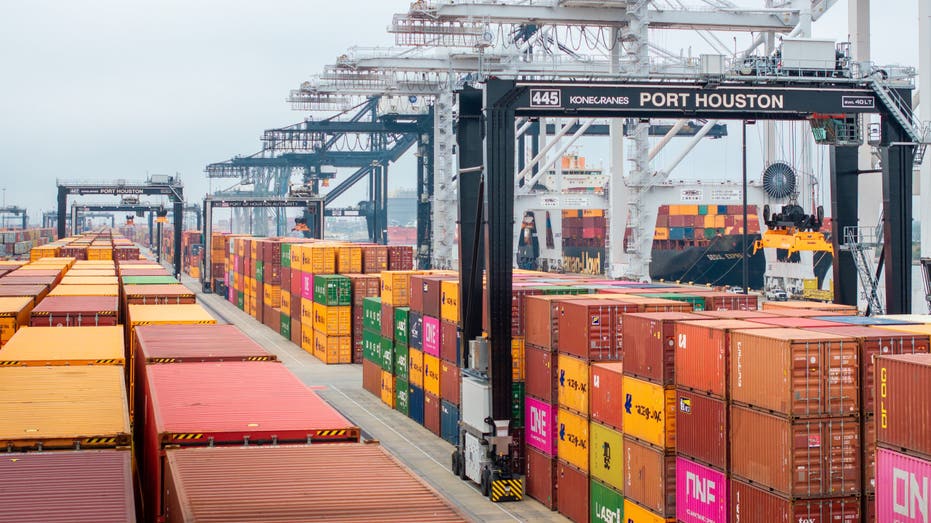Facing a steady drumbeat of tariffs under President Donald Trump, U.S. businesses could increase their reliance on government-regulated bonded warehouses.
These storage facilities, managed by U.S. Customs and Border Protection agents, allow importers to delay paying tariffs – helping ease the rising costs of bringing foreign goods into the country.
In other words, goods stored in bonded warehouses have not officially entered the country. Therefore, import taxes are deferred until the product leaves the storage facility and is released to the domestic market.
TRUMP’S TARIFF REVENUES ARE HITTING RECORD-HIGHS, GENERATING $100 BILLION SO FAR THIS YEAR
“Think of it like the zone in an airport where you have gotten your suitcase but not yet gone through the ‘Declare/Nothing to Declare’ lines,” explained Tim Hruby, an international trade attorney at Blank Rome.
“Goods can be unloaded from a ship, airplane, etc., and kept in a bonded warehouse until the importer is ready to clear customs,” he said, adding that importers will incur storage fees.
The U.S. Customs and Border Protection has more than 1,700 of these bonded warehouses nationwide, typically near ports and airports.
“They’re not tariff-free bubbles exactly,” said Deborah Elms, who heads trade policy at the Hinrich Foundation, an economic research firm based in Singapore.
“Tariffs are applied when goods leave the warehouse,” she said, adding that bonded warehouses delay the need to pay import duties immediately.
Elms explained that bonded warehouses can give businesses the flexibility to streamline logistics, delay duties and manage cash flow more efficiently.
While goods are stored in a bonded warehouse, importers can monitor tariff rates and other trade policies. If the tariff rate goes up, shippers can keep their products in these regulated warehouses. If the rate drops, importers can release their goods from storage for entry into U.S. commerce.
A BREAKDOWN OF THE COUNTRIES FACING TRUMP’S TARIFFS
For example, if an American company imports glass from Germany, it can hold the product in a bonded warehouse near a U.S. port of entry and wait for a decrease in tariff rates or, in some cases, a tariff exemption, which waives import duty rates altogether. Companies can hold goods in a bonded warehouse for a period of up to five years.
A wide variety of goods can be stored in a Customs-bonded warehouse, including imported merchandise, raw materials, finished products and even some hazardous materials.
“This is a gamble, of course, as rates might also increase, leading to even higher tariff payments,” Elms explained.

When asked why most U.S. businesses don’t take advantage of bonded warehouses, Elms said federally-regulated storage comes at a premium.
“Bonded warehouses are also more expensive, as they function as a customs-controlled environment which requires greater monitoring,” she said, adding that in some cases the warehouses “are also smaller, meaning firms can’t just stockpile massive amounts of inventory.”
WALL STREET SHRUGS OFF TRUMP’S FRESH TRADE WAR RHETORIC, INVESTORS HOLDING FIRM
So far this month, Trump has announced plans to impose a 30% tariff on imports from Mexico and all 27 countries that make up the European Union. Those tariffs come on the heels of a 50% levy on copper imports and products from Brazil, a 35% tariff on Canadian goods and other tariffs imposed on more than 20 countries.
The announced tariffs are slated to take effect on Aug. 1.
Meanwhile, Trump’s tariffs have generated more than $100 billion in revenue so far this year, according to the Treasury Department.
The U.S. received more than $27 billion in customs duties in June, the highest figure so far this year. Compared to last June, this year’s figures are up 301%.
The Trump administration touts the rising tariff revenue as a success, but U.S. businesses pay those higher import taxes. Over time, that economic burden may be passed on to consumers through higher prices.
Read the full article here


